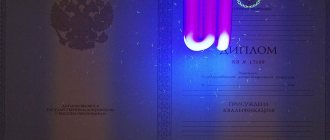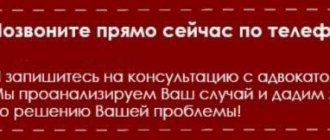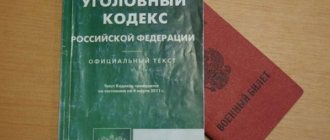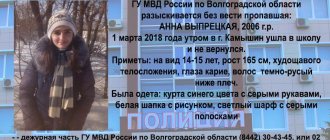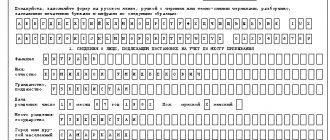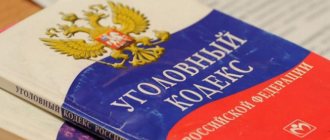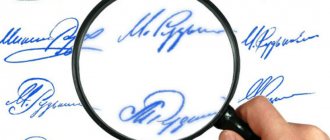Approximately 1 million people are thinking about purchasing a diploma, this is the annual figure. How many of them actually bought a fake diploma and got a job with it, one can only guess. We will not find out the motives why people come to such a decision, because this is already obvious. But it’s one thing when a person has extensive experience in a certain field of activity and is a first-class specialist in his profession, and a diploma is just a formality. And it’s completely different when there is no knowledge, no skills, no skills, and a crust is the path to the desired position, including a managerial one. The saddest thing is that people with fake diplomas work in various industries. These include teachers in kindergartens and technical schools, and employees of law enforcement agencies, Russian Railways, airlines, and even medical workers.
The legislator provided for liability for persons who nevertheless decided and bought a diploma, and subsequently used it for employment.
Criminal liability for using a fake diploma for employment.
If you want to buy a diploma and then hang it in a frame on the wall and brag to your friends, then you will not face anything for such an action. But if you want to use a fake diploma for employment, then you will be punished for such an act.
Let's turn to the Criminal Code of the Russian Federation. According to Part 3 of Article 327 of the Criminal Code of the Russian Federation, the use of a knowingly forged document is punishable by a fine in the amount of up to eighty thousand rubles or in the amount of the wages or other income of the convicted person for a period of up to six months, or by compulsory labor for a period of up to four hundred eighty hours, or by corrective labor for a period of up to two years, or arrest for up to six months.
A purchased diploma is a time bomb; it is impossible to predict when it will explode. An employee can change several employer organizations and work for several decades before a fake is discovered.
Statute of limitations for criminal prosecution for using a fake diploma.
Using a fake diploma is a minor crime. According to Article 78 of the Criminal Code of the Russian Federation, exemption from criminal liability is provided if two years have passed since the commission of the crime. How to correctly calculate the statute of limitations?
The use of a fake diploma is a formal crime, it represents the presentation of a forged document to state, municipal bodies, officials in order to obtain rights or release from obligations, it is completed from the moment the forged document is presented, regardless of whether the perpetrator managed to obtain the desired rights or be released from responsibilities.
Subsequent continuous or periodic use of certain rights on the basis of a previously submitted document does not turn this crime into a continuing one, as some believe.
The point is this. In 2013, a certain A. was hired as a teacher at the College of Mechanical Engineering. I provided the purchased diploma as a document confirming the required education. Then, in 2021, A. was transferred to the position of head of the academic department. Accordingly, her earnings changed. Also in 2021, it turned out that the diploma was not real.
It was at the time the diploma was presented in 2013 that the crime was over, since she did not commit any other active actions to use the forged diploma in the future (in 2017, A. did not present the diploma again and other reasons were the basis for her transfer to a new position) .
Violation of higher education requirements for judicial representatives - consequences
From October 1, 2021, Federal Law No. 451-FZ has made changes to Part 4 of Article 61 of the APC, which regulates the registration and confirmation of the powers of a representative. From now on, all other persons providing legal assistance present to the court documents on higher legal education or an academic degree in a legal specialty.
The dampness of the said norm attracts attention. There is an obligation, but there is no liability for violation. What happens if a representative with a fake diploma appears in the arbitration process and represents the interests of, for example, a legal entity in all instances? There is no practice yet, we can speculate.
Violation of part 4 of Article 61 of the APC is not included among the unconditional grounds for canceling a judicial act provided for by Articles 270, 288 of the APC. The rule on having a higher legal education is procedural, therefore, guided by Part 3 of Article 270 of the APC, the court will have to figure out whether this violation led to the adoption of an incorrect decision or not.
The review of a judicial act that has entered into force, the representation of which was carried out by a person with a fake diploma, is further complicated by the absence of direct indications of the possibility of such a review in Article 311 of the Arbitration Procedure Code. It is an open question whether the lack of a diploma is a significant circumstance for the case? A diploma of a representative within the meaning of Part 1 of Article 64 of the APC is hardly evidence, therefore, even its falsification established by the verdict will not provide the opportunity for revision due to newly discovered circumstances. And again we have to check the consequences of such falsification: did it lead to the adoption of an illegal judicial act in the case or not? Clause 3 of Part 2 of Article 311 of the APC also makes it necessary to establish the corpus delicti, that is, it is not an absolute basis for cancellation.
The presence of the composition is all the more doubtful when the judicial act, the cancellation of which is in question, was adopted in favor of a person whose interests were precisely represented by a person with a fake diploma. In this situation, it is hardly possible to expect a statement from this person as a victim. Do the actions of presenting a fake diploma constitute part of Article 303 of the Criminal Code, so that any person can file an application for prosecution? It seems to me that no, since, as already stated above, the representative’s diploma in the case is not evidence.
You can try to cancel the judicial act on the basis of the provisions of Part 3 of Article 64, which provides for a ban on the use of evidence obtained in violation of federal law. After all, the person who submitted them to the case did not have the right to participate in the case and, as a result, present evidence. But here, too, we need to figure out whose signature and which way the documents were sent to the process.
Thus, there is an absence in the APC of a direct rule providing, if not liability for falsification of a diploma by a representative, then at least consequences for the process and the represented person. While waiting for its adoption, perhaps the courts should be guided by Part 5 of Article 3 of the APC, which allows the analogy of the law to be applied to missing procedural rules. Article 49 of the Code of Criminal Procedure provides lawyers with the right to represent the interests of persons brought to criminal liability. And violation of this norm entails the unconditional reversal of the sentence on the basis of Article 389.17 of the Code of Criminal Procedure.
Failure to take procedural measures specifically for parties whose interests, in violation of Part 4 of Article 61 of the APC, are represented by persons without higher education, makes the norm unworkable.
Dismissal for an employee presenting a false diploma to the employer.
According to paragraph 11 of Article 81 of the Labor Code of the Russian Federation, an employment contract can be terminated by the employer in cases where the employee submits false documents to the employer when concluding an employment contract.
In accordance with the explanations set out in paragraph 51 of the Resolution of the Plenum of the Supreme Court of the Russian Federation dated March 17, 2004 N 2 “On the application by the courts of the Russian Federation of the Labor Code of the Russian Federation”, according to which, by virtue of paragraph 11 of the first part of Article 77 and Article 84 of the Labor Code of the Russian Federation, an employment contract can be terminated due to a violation of the rules for concluding an employment contract established by the Labor Code of the Russian Federation or other federal law, if violation of these rules excludes the possibility of continuing work and the employee cannot be transferred with his written consent to another job available to the employer.
It is necessary to take into account that if the rules for concluding an employment contract were violated through the fault of the employee himself due to the submission of false documents, then the employment contract with such an employee is terminated under clause 11 of part one of Article 81 of the Code.
To dismiss an employee under paragraph 11 of Article 81 of the Labor Code of the Russian Federation, the employer must prove the following legally significant circumstances:
- submission by an employee of false documents when concluding an employment contract;
- inclusion of submitted false documents in the list of documents required for concluding an employment contract;
- the inability of an employee to perform a labor function due to his lack of education and (or) skills necessary to perform it, which were confirmed upon admission to work with forged documents.
The falsity of the diploma is proven by a request to the educational institution, where they can confirm or deny the fact that the diploma was issued. You can also check the authenticity of the diploma by asking Gosznak whether a diploma of the same series and number was issued.
The last two points are proven by the job description of the institution. It specifies the requirements for appointment to the position, including education and diploma. Or a diploma is not required, but is an advantage when choosing an employee between candidates.
The qualification directory is a normative document.
Also considered an important document is the Qualification Directory of Positions of Managers, Specialists and Other Employees, approved by Resolution of the Ministry of Labor of Russia dated August 21, 1998 N 37. The Directory consists of qualification characteristics of positions of managers, specialists and employees, containing job responsibilities and requirements for the level of knowledge and qualifications of managers , specialists and employees.
Judicial practice tends to suggest that the Qualification Directory is a normative document and its provisions are imperative in nature.
The qualification characteristics of employee positions included in the Directory have been revised taking into account the Constitution of the Russian Federation, as well as adopted legislative and regulatory legal acts. Each qualification characteristic is a normative document that defines the employee’s labor function and regulates its content.
Qualification characteristics at enterprises, institutions and organizations can be used as normative documents of direct action or serve as the basis for the development of internal organizational and administrative documents - job descriptions containing a specific list of job responsibilities of employees, taking into account the peculiarities of the organization of production, labor and management, as well as their rights and responsibilities.
For an employer, the Qualification Handbook is exactly that regulatory document of direct action and requirement, in accordance with which employees are hired for the relevant positions.
Share with friends
Diploma options
On sale you can find several options for documents on higher or secondary specialized education. The easiest way to create is to use graphic editors and a color printer. Such a fake will be visible and any employee of the personnel department will immediately detect it.
The second way is to use original forms. They are sold by unscrupulous employees of educational institutions. To do this, they write them off under the guise of being damaged. Then a seal is affixed and the rector’s signature is copied.
The third method is the most difficult. For this, the original graduate diploma is taken and the information in it is corrected by correction. To do this, the letters are carefully erased and corrected. This is a time-consuming process and you have to look for a person with similar personal data.
No fake diploma will ever be identical to the original one.
Modern documents have several degrees of protection:
- When copying, the inscription “copy” will appear - it consists of small characters on the original form.
- Water marks.
- Ultraviolet tags.
Verifying the authenticity of a diploma is quite simple. An employee of the HR department just needs to make a written request to the educational institution. During a full check, they look at the date of enrollment of the student, his admission to state exams and defense of qualifying work. All orders and statements are stored in the archives of the university or college.
Some scammers use a scheme to enter information about educational documents and (or) qualifications and training into the Federal Register. But this database stores data only from 2010.
In recent years, another diploma scheme has emerged. To begin with, a person receives a false document with which he enters the master's program. University employees accept him into the paid department. The student can attend classes, submit work, and at the end of the day he will receive an authentic diploma that can be safely shown. In this case, he will have to study for 2 years.
Types of fake diplomas
Fraudsters make education documents on three types of forms:
- on a false form, which is quite easy to distinguish from the original. This is the cheapest option;
- on real university letterhead. Such papers cannot be found in the public domain, but some university employees write off extra or slightly damaged forms and sell them for big money;
- diploma on a real form entered into the university database. Such a “document” will cost buyers more than 300 thousand rubles. In fact, this corresponds to the cost of studying at some universities. To sell such a diploma, the supplier contacts a university where he has connections, enrolls the client in his final year of study, and at the end of the year takes away his almost real diploma. The buyer can even come to class, but this is not required.
Important! Written-off forms will also not pass verification if the employer makes a request to the university, since they are not entered into the general database.
Who buys fake diplomas
A fake higher education diploma looks like a real one. Its cost depends on the quality of the form, the university that “issues” it, the period of issue, and the level of education (secondary, higher).
You can buy not only modern diplomas, but also Soviet-style diplomas.
If desired, this can be not just a diploma of higher education, but a diploma of an academic degree - a diploma of a candidate or doctor of science.
Diplomas are purchased by:
- Middle-aged people who, due to a change in employer policy, are required to obtain a diploma in a certain specialty or academic degree. It happens that a person has been working for many years and has enough experience, but he doesn’t want to go to study even by correspondence.
- Young people under 30 years old. Such people, as a rule, were not able to finish their studies at a university, and decided to get a diploma “so that they could have it.”
- Young people under 22 who came to study in a big city, but the temptations of adult life turned out to be stronger. At the same time, you need to show something to your parents on Skype.
- Honest university graduates who have lost their diploma, and because of paperwork at their alma-mater, cannot get a duplicate for a long time.
Confusion in universities or even accidents often lead to a surge in the fake diploma industry. For example, in 2006, the Moscow Forestry Engineering University in Mytishchi burned down. After that, many people ordered a diploma from this university, because if they called there for verification, no one would be able to find information about graduates: the entire archive burned down.
Types of punishment
People buy fake diplomas for various reasons: some want to climb the career ladder, others want to improve their level of qualifications. Sometimes a person completes courses and gets a job, but for further development he needs specialized education.
It was the same with accountants. Reputable companies only hired people who had a diploma. Even if a person had extensive experience, he was refused a job. Not everyone has the opportunity to spend several years studying, much less pay for it. Therefore, the demand for fake documents is very high.
Of course, all reputable organizations verify the authenticity of the diploma. However, there were high-profile cases when people worked for 15-20 years with ersatz and the deception was discovered by chance during an audit. After all, when a person applies for an entry-level position in a company, his education document is not carefully studied.
- If a forged document is detected, the owner faces punishment under Article 327 of the Criminal Code of the Russian Federation in the form of:
A fine of up to 80,000 rubles. - Compulsory work for up to 480 hours.
- Arrest for six months.
If the job required certain professional skills, the person is fired. For example, to work as a teacher you need a diploma in pedagogical education. In the case of a forged document, his qualifications do not correspond to those stated and he has no right to occupy this position.
In recent years, government agencies have tightened checks on the authenticity of diplomas. They concern not only managers, but also ordinary employees. Private companies have also begun to take a responsible approach to recruiting employees.
Real responsibility for fake certificates
The Internet is still a fairly free place, and therefore, in its vastness it is possible to find everything that is prohibited in real life. They offer weapons, drugs and fake documents on the Internet. The latter are perhaps the most in demand. Government agencies or employers constantly require certificates, which many citizens cannot obtain for one reason or another. If a person lives in another region, and a certificate must be obtained at the place of residence, then many are in no hurry to go on a multi-kilometer voyage, but prefer to turn on the computer and log into the Internet. This is akin to shopping at a street market, where you can choose the product you like and negotiate a reasonable price.
“In accordance with the law, forgery and sale of fake documents, as well as official forgery, are a criminal offense for which liability is provided under Articles 292 and 327 of the Criminal Code. Punishment can range from a fine to actual imprisonment. It all depends on the number of episodes and other aggravating or mitigating circumstances,” warns the head of the legal practice of our legal center, criminal lawyer Mars Tarasov.
With the development of modern technologies, it is now possible to obtain the necessary document from government agencies in a matter of days. But if it is impossible to do this legally, then the Internet will come to the rescue. To become the owner of a diploma from a higher educational institution, you need to spend several years, but on the Internet you can buy a diploma quickly and inexpensively. Certificates of no criminal record, medical documents and other necessary papers will be delivered to your home by courier, however, their quality can raise a lot of questions. Such resources are under constant attention from the authorities, and although they are regularly closed, new ones immediately appear.
“Roskomnadzor can contact the site’s owners so that they remove prohibited information, or even simply block the resource in the shortest possible time. There are more than 20 categories of topics that you should not write about on the World Wide Web. For example, about how to avoid the army or avoid responsibility for crimes committed. “Death groups” and porn sites are also regularly closed,” says criminal lawyer Mars Tarasov.
Even a less-trained specialist can create a website. Even a first-year student can do this, and it won’t take much time, but the profit that the owner will receive can amount to millions of rubles. Some receive money from clients, but do not do any paperwork. Firstly, this is not very legal, and secondly, it is unlikely that a person who wanted to obtain an illegal certificate of no criminal record or a university diploma will run to the police with a statement of fraud. The same applies to sites that offer drugs, but have nothing to do with their sale.
“There are no signs of a crime in the actions of the creators of such sites. They simply could take part in the development of the resource, but not know what it will be used for in the future. But an investigation or court may establish that they were related to the information posted on it. Then we can talk about punishment,” sums up criminal lawyer Mars Tarasov.
